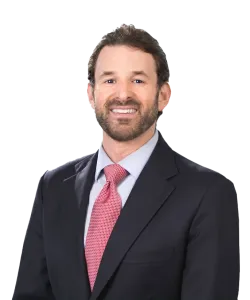COVID-19 Class Action Update: Employment, PPP, Business Interruption Insurance, and Airline Refunds Drive New Litigation
In addition to battling class certification, businesses swept into these class actions may be faced with consolidation motions in multidistrict forums.
The Arent Fox Class Actions group has been tracking COVID-19 class action litigation across the country since the onset of the pandemic. Over the last 90 days, we have seen significant developments in the areas of employment, lender liability, business interruption insurance, and airline class actions.
With many similar suits pending nationwide, plaintiffs are seeking to consolidate actions in centralized multidistrict litigations. Below we break down the latest COVID-19 class action news and where we see this litigation headed in the months to come.
Employment
In Massachusetts, a group of Whole Foods employees filed a proposed class action in federal court alleging they received discipline for wearing Black Lives Matter (BLM) masks at work. Both black and non-black employees started wearing the masks in June 2020 to support the BLM movement and civil rights protests around the country. Citing the Whole Foods dress code policy, which prohibits employees from wearing clothing with slogans unrelated to the company, Whole Foods allegedly sent home employees who refused to remove the masks, assigned disciplinary “points” against the employees, and terminated one employee who organized workers to wear the masks and protest outside one of its stores. The workers claim Whole Foods is selectively enforcing its dress code policy, which generally goes unenforced. The named plaintiffs assert race discrimination and retaliation claims under federal law and seek to certify a class of all similarly situated Whole Foods employees across the country.
In a case pending in federal court in the District of Columbia, Lyft moved to compel arbitration of class action claims filed by drivers seeking paid sick leave during the COVID-19 pandemic. The drivers claim Lyft misclassified them as independent contractors and violated the DC Accrued Safe and Sick Leave Act by failing to provide them with the minimum paid sick leave required for employees. Similar suits have been filed against Lyft in California, New York, and Massachusetts. Lyft claims its terms of service, which the drivers accepted, require arbitration of claims on an individual basis and preclude claims brought on a class or representative basis. Lyft contends the arbitration provision is subject to enforcement under the Federal Arbitration Act (FAA). The drivers, who operate in the District of Columbia, Maryland, and Virginia, claim they fall within an exception to the FAA for workers engaged in interstate transportation.
Paycheck Protection Program
Accounting firms, consultants, and other “agents” have filed a wave class action suits claiming lenders failed to pay them agent fees allegedly owed for assisting small businesses apply for loans under the Paycheck Protection Program (PPP). The plaintiffs cite to the text of the CARES Act, PPP regulations established by the Small Business Association (SBA), and a PPP information sheet issued by the US Treasury Department, which collectively provide that agent fees between .25% and 1% of loans will be paid by lenders out of the processing fees lenders receive from the SBA. Under the program, a PPP agent can be an attorney, accountant, consultant, broker, or another person who assists businesses with loan applications or helps lenders distribute loans. The banks have argued that the CARES Act directed the SBA to set a cap on agent fees but did not create an entitlement to fees. On August 5, 2020, the US Judicial Panel on Multidistrict Litigation denied a request to transfer and centralize the actions in a single federal district.
Business Interruption Insurance
Insurers and policyholders have been anxiously awaiting a decision on two petitions to centralize hundreds of COVID-19 business interruption suits, including class actions, in a single multidistrict litigation (MDL). The dueling policyholder petitions sought consolidation in either Illinois or Pennsylvania. Proponents argued centralization was needed to avoid inconsistent rulings and duplicative discovery and to conserve judicial resources. The insurance industry united in opposing consolidation, arguing multidistrict litigation would be inappropriate given the differences in policy language, policyholders’ losses, and applicable state insurance laws.
On August 12, 2020, the US Judicial Panel on Multidistrict Litigation denied the petitions, concluding that the proposed industry-wide MDL would be overly-complicated and inefficient with few common questions of fact. However, the Panel suggested it may consider smaller “single-insurer” MDLs to centralize actions against insurers facing high numbers of cases.
Airline Refunds
As in the PPP and insurance context, consumers seek consolidation of class action cases brought against airlines seeking refunds for canceled flights. There are approximately 40 such cases scattered across the federal district courts. The forums proposed for consolidation include (i) the Northern District of Illinois, where the first refund case was filed, (ii) the Southern District of Florida, home to Spirit Airlines, which faces more refund suits than any other airline, and (iii) the Northern District of Georgia, where Delta, the largest airline by revenue, is headquartered.
Takeaways
As we previously reported, businesses in a wide array of industries are falling victim to class actions filed as a result of the COVID-19 pandemic. As the pandemic continues, we expect additional companies across all sectors of the economy will be susceptible to class action claims arising from COVID-19 disruptions. In addition to battling class certification, businesses swept into these class actions may be faced with consolidation motions in multidistrict forums. While consolidation may present efficiencies for the plaintiffs, it may result in logistical complications, inefficiencies, and added time and expense for the defense. It is critical to engage experienced class action counsel to navigate the thorny issues involved in these matters and to develop early strategies to mitigate potential exposure.
Contacts
- Related Practices


